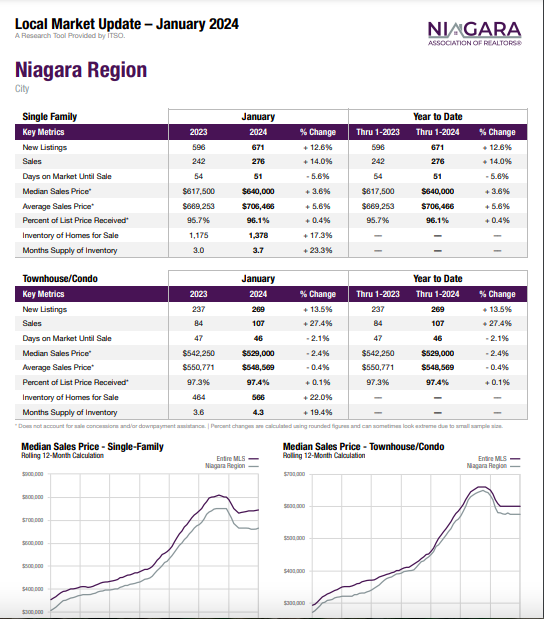If you are aiming to become a homeowner, it is essential to be prepared each step of the way. From keeping an eye on interest rates, to searching for the ideal home, the application for a mortgage is the most important. Even though it might seem daunting, it can be less intimidating if you take the time to organize your financial situation beforehand.
1. Analyze your credit ranking
When it comes to credit ratings in Canada, the range is between 300 and 900 across five levels - Poor, Fair, Good, Very Good and Excellent. This can differ depending on the credit bureau, however, the general procedure is not altered. It is important to monitor your credit history as it is a reflection of your financial well-being.
When considering your mortgage application, lenders will use your credit score to evaluate your capability to pay back your debts and determine your monetary reliability. It is beneficial to have a score of at least 660, but the higher the score, the more likely you will be offered the lowest mortgage rates in Canada. The credit report will contain data about your payment history, the number of accounts you have, and the duration of your credit record. Simply making payments on time and not overusing your credit will help improve your score.
A variety of online firms provide the possibility to check one's credit score without charge. Such checks will retrieve a person's credit score from either of Canada's two credit bureaus, Equifax or TransUnion. To ensure your credit score is healthy, it is advisable to review it every three months and take the necessary steps to boost it.
2. Make a larger initial payment
When buying a house, it is always necessary to provide an initial sum of money, which is referred to as a down payment. The more you can afford to pay for the down payment, the better off you are for a couple of reasons. Primarily, the larger the down payment is, the less you need to borrow, and correspondingly, the lower the interest rate will be. Additionally, the size of the down payment also affects your eligibility to get a mortgage.
If you are looking to get a mortgage approved in Canada, you should be aware that there are certain minimum down payment requirements.
From $500,000 to $999,999: A 5% payment of the initial $500,000 is required, with an additional 10% for the amount above $500,000.
For home purchases in Canada with a down payment of less than 20%, the buyer is required to purchase mortgage loan insurance. This will result in an increase to the monthly mortgage payment due to the insurance premiums.
It is advisable to save as much money as possible for a down payment, especially with the high cost of housing in cities like Toronto and Vancouver. An increased up-front payment can lead to a greater chance of being approved for a mortgage. Our mortgage payment calculator can help you evaluate different down payment and amortization possibilities, and compare fixed and variable mortgage rates. If you want to focus on amortization, our amortization calculator will help you experiment with different amortization periods and to see how it will affect your mortgage payments over time.
3. Secure a steady income
When applying for a mortgage, it is essential to maintain your present employment. Lenders will not grant the loan unless you can demonstrate the ability to pay off the debt. Having a full-time job is the ideal way to show this, since it provides a steady source of income. It is advantageous to have been with the same employer for a long time as well, although this is not the sole factor in the application process. When applying for a mortgage with a partner, it is beneficial for both of you to have full-time jobs.
When you are an entrepreneur, the process of obtaining a mortgage can be a bit more difficult. It is essential to demonstrate that you have the capability to remain profitable in the long run, which involves presenting your business and income records from the past few years. To increase your chances of getting approved for a mortgage, you should reach out to a licensed mortgage broker. They possess all of the necessary information to prepare a strong application.
4. Decrease current debt
When getting a mortgage, it is important to make sure you have as little debt as possible. This is because it will be easier to pay off the mortgage when you do not have other debts to worry about. Additionally, lenders will take into account the ratio of your debt to income when deciding whether or not to approve your mortgage application.
The amount of money owed on your credit cards, lines of credit, or student loans does not need to be zero. Your current debt, however, will influence the amount of money you will be able to borrow, as well as the rate of interest. Keeping debt to a minimum is also beneficial for your credit score.
When a lender looks into your financial history and gives you the go-ahead for a predetermined mortgage amount, interest rate, and length of term, this is known as a mortgage pre-approval. Time frames for these pre-approvals usually range between 90 to 120 days, depending on the lender, granting you a period of time to locate a home without having to forfeit a great mortgage deal.
When it comes to acquiring a mortgage, lenders will look at your credit rating, the amount of money you're ready to pay upfront, your income, your employment status, your debt-to-income ratio, as well as your assets and liabilities. Obtaining pre-approval will enable you to look for a home within your budget and, if you find what you're looking for, to make an offer promptly.
5. Obtain an excellent rate
The end result of a mortgage application is usually thought of as obtaining an excellent rate, however, it's a two-way street. If you examine the market or use a mortgage broker, you can usually find lenders that offer lower rates. When you get a better mortgage rate, your monthly payments will be reduced, which can make it easier for you to pay your mortgage. This can make it simpler for you to get approved for a mortgage and can allow you to borrow more.
An excellent starting point is to look into the top mortgage rates across Canada. You can typically access these via mortgage brokers, who offer their services free of charge. Such a consultation can be beneficial since they can also provide tailored advice.
6. Fully understand what you can and cannot manage financially
When figuring out what amount of mortgage you can manage, various variables need to be taken into consideration such as the amount of mortgage payments, living expenses, debt payments and other financial responsibilities. Mortgage lenders will evaluate all these, but it is important that you are honest with yourself regarding what you can afford.
You are the one who is aware of your financial and lifestyle necessities. With the mortgage application process, some expenses like childcare, grocery or supporting your parents may go undetected. Additionally, your future objectives can modify your financial circumstances. You do not need to divulge to your bank if you intend to leave your job or conceive a child, however, these events could significantly affect your capability to manage your mortgage. Moreover, you should consider other buying costs, similar to home examinations and closing costs (usually about 3-4% of the purchase price). Keep in mind that you will also have to pay for utilities, maintenance, property taxes and repairs.
Evaluate your financial situation both presently and for the future, and then stay within those limits. In the event that your finances are in a good state, you may get a larger mortgage than expected. Avoid the urge to use all the funds you are approved for and take into account what you truly can pay for.
The Final Summary
Securing a mortgage is contingent on having your financial situation in check. Enhancing your credit score, reducing debt, and saving money are all beneficial activities, not just for those applying for a mortgage, but for everyone. Even if you're not intending to purchase a home at this time, being mindful of your finances presently will put you in a better financial posture for the future, whatever you decide.






















